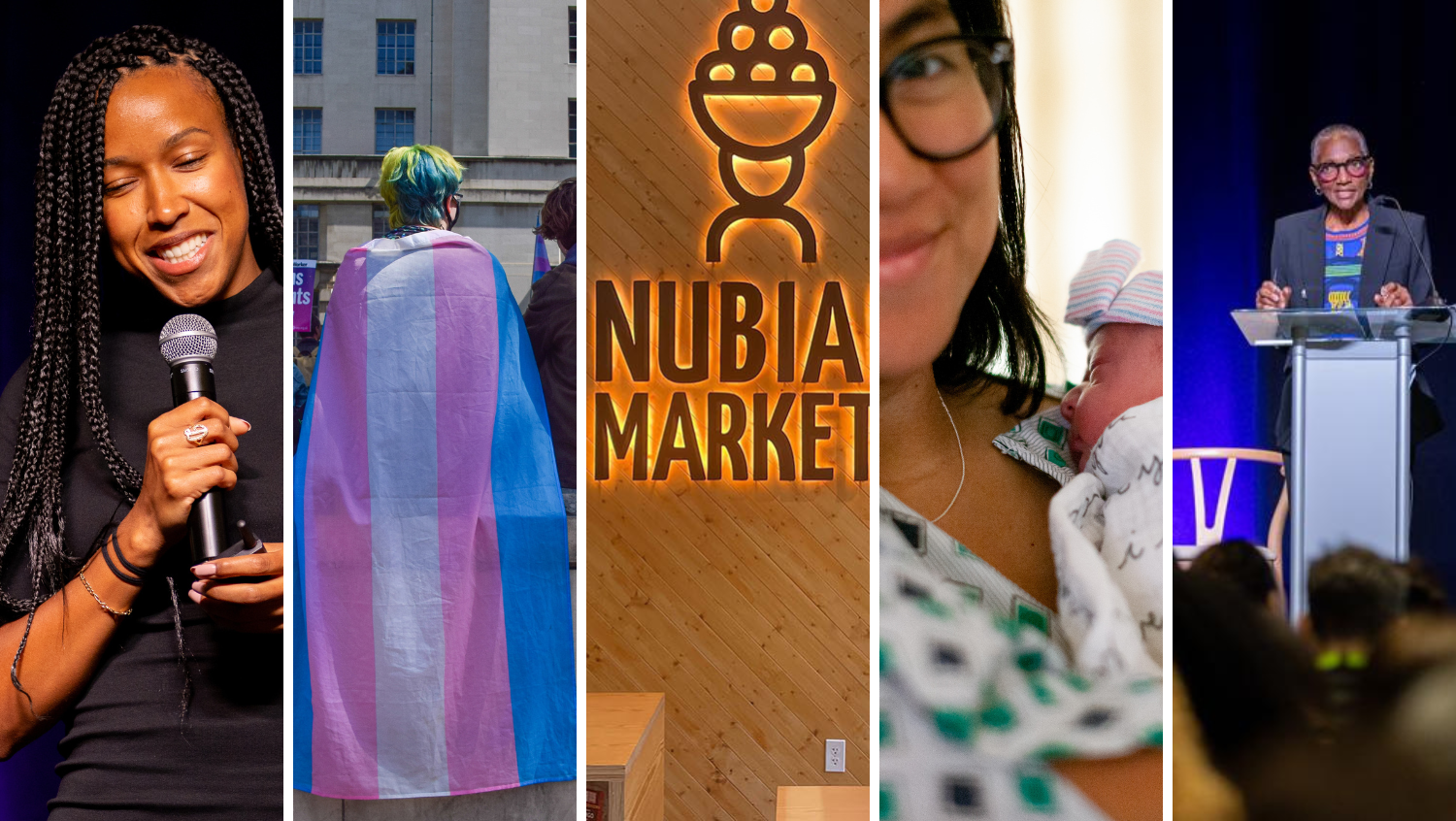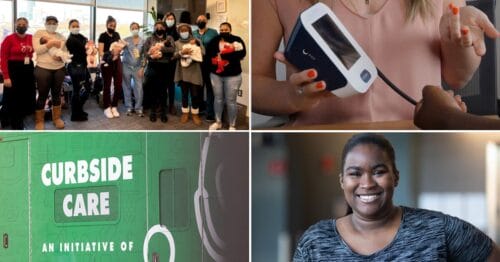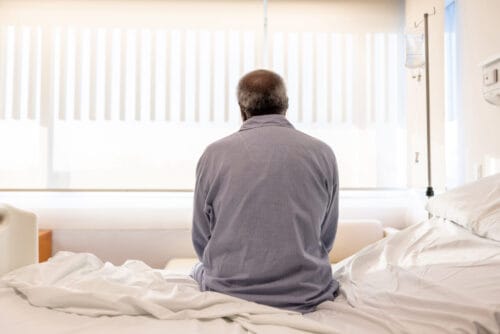5 Times BMCHS Re-Affirmed Its Commitment to Health Equity in 2023
December 22, 2023

Boston Medical Center, Getty Images
Boston Medical Center Health System's programs continue to show equity and innovation with antiracist addiction research, gender affirming care, and more.
HealthCity is committed to sharing stories of equity and innovation. Over the last year, we shared a plethora of stories that showcased Boston Medical Center’s commitment to diversity, equity, and inclusion. BMC is in Boston’s South End, where most of its patients are people of color. Providing high-quality, clinically exemplary care with community and equity at its heart is one of the core tenets of BMC’s care delivery system. BMC VP of Mission Thea James, MD, MBA puts it like this, “DEI is in the fabric of the culture here. We enable, invite, and nurture the perspectives of everyone. This is proof of what happens with intentionality. We are not afraid to be bold and do something people think can’t be done. And we’re not done yet.” There’s more to come in 2024 and ahead, but HealthCity wants to celebrate the work Boston Medical Center Health System has done in breaking barriers and reducing inequities.
1. BMC Is Developing New Anti-Racism Addiction Treatment, Research, and Policy
Due to long-term systemic racism and the criminalization of addiction during the crack epidemic, Black people are far less likely to engage in treatment than their white counterparts. Recognizing this disparity in treatment, the Grayken Center for Addiction created a project team made up of clinical experts in addiction medicine, addiction researchers, and people with lived experience of racism and substance use disorder to answer the question of “How can we make addiction treatment more appealing to Black people?” The project concluded this year, after four day-long convenings and the project team released a report of their findings. The completed report can be found here and you can read more about their findings on HealthCity: Read Part 1 and Part 2.
Sheila Chapman, MD, primary care physician at Boston Medical Center and collaborator in this research project.
“One of the most authentic pieces of being involved with this project is the equity among the diverse members of the project team. So, it’s not just that folks with lived experience or community-advocate types are engaging. It’s more than that. They’re truly partners. We are all equal partners.”
2. Why BMC’s Center for Transgender Medicine and Surgery Just Changed Its Name
Over the last year, BMC’s Center for Transgender Medicine and Surgery changed their name to the more inclusive “ GenderCare Center. Click here to read an interview with GenderCare Center staff to help readers understand the evolution in language.
Jordan Bensley, patient navigator at BMC’s GenderCare Center
“One thing that stood out was how much “gender care” — that combination of words — spoke to people. A friend said, ‘it lets you know you can have your own gender journey within this center.’ And it’s true. This is about your own individualized journey and not a prescribed notion of ‘you have to be trans this one way’”
3. Bringing Healthy Food and a Community Hub to Roxbury
Nubian Markets is a new Black owned Halal market and community hub in Roxbury’s Nubian Square. The market is home to food from the African diaspora with the hope of supporting the surrounding community with ingredients that connect them to their culture. Boston Medical Center Health System’s BOS Collaborative provided a critical $1 million investment in the market. More details are available in August’s HealthCity coverage.
Petrina Martin Cherry, VP of Community Engagement at Boston Medical Center, whose team was one of the BMC groups responsible for the Nubian Markets investment.
“What we’ve created is not just a model for economic mobility, and not just this incredible Black business, and not just a place where other Black businesses can find success. It’s all that. But it is also a place for Black people to come in and feel a sense of community and ownership and pride. That BMC had a hand in it, we should all be proud of that. And it will be great to see us replicate that again and again.”
4. Birth Sisters: The Case for Hospital-Supported Doula Programs
Boston Medical Center’s Birth Sisters program is a hospital-based doula program that centers the birthing person with a team of doulas, known as “birth sisters” who represent the surrounding Boston community in terms of culture, racial identity and ethnicity. The program, which has been in existence for 30 years, not only gives unique birth support to pregnant patients, but provides a career path for people in the community. HealthCity’s April coverage also highlights the unique role that doulas play in the BMC Health System.
Dona Rodrigues, CNM, director of Birth Sisters Program
“Our goal was to recruit women from the community that looked like the birthing person, spoke their language, or knew what it was like to live in their community. So, we were recruiting people that weren’t always doula-trained already. They might have worked in the community or given birth at BMC and wanted to give back. And we were also giving them, if they wanted, a possible career path—and several Birth Sisters have gone into nursing or midwifery.”
5. “Reject Futility”: BMCHS’s Health Justice Summit Opens With a Potent Message of Hope
September Boston Medical Center’s Health Equity Accelerator hosted its inaugural conference, EQTY 2023: A Summit For Health Justice. The conference centered around a collective commitment to health justice. Boston Medical Center’s Vice President of Mission Thea James, MD, MBA, and Harriet Washington, a writer and health ethicist, who wrote the seminal book on health equity, Medical Apartheid, each opened with powerful statements on racial inequities and disparities. More can be found in HealthCity’s September coverage of the conference.
Thea James, MD, MBA, BMC’s VP of Mission
“It is our sincere hope that every individual in this room is replenished, regenerated, and reinvigorated by today’s series of conversation, so that each of us can continue to advance the work that nourishes our Black and brown communities and address health injustice.”


